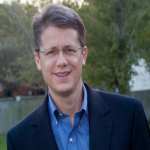
A jury issued a verdict this week that found the University of North Carolina–Wilmington retaliated against one of its professors for his views. Last year, a federal court found sufficient evidence to warrant a trial after an appeals court determined that the First Amendment protects the views criminology professor Dr. Mike Adams published in opinion columns with which university officials disagreed.
“We are grateful that the jury today reaffirmed the fundamental principle that universities are a marketplace of ideas, not a place where professors face retaliation for having a different view than university officials,” said Alliance Defending Freedom Litigation Staff Counsel Travis Barham, who participated in the trial this week. “As the jury decided, disagreeing with an accomplished professor’s religious and political views is no grounds for denying him a promotion.”
“The jury saw what we have long known to be true about the wrong done to Dr. Adams,” said Senior Legal Counsel David Hacker. “The verdict is a powerful message for academic freedom and free speech at America’s public universities.”
Alliance Defending Freedom attorneys represent Adams together with lead counsel David French, who began the case with Alliance Defending Freedom and now litigates for the American Center for Law and Justice. The trial in Adams v. The Trustees of the University of North Carolina–Wilmington began Monday in the U.S. District Court for the Eastern District of North Carolina, Southern Division.
The U.S. Court of Appeals for the 4th Circuit wrote in 2011 that “no individual loses his ability to speak as a private citizen by virtue of public employment…. Adams’ columns addressed topics such as academic freedom, civil rights, campus culture, sex, feminism, abortion, homosexuality, religion, and morality. Such topics plainly touched on issues of public, rather than private, concern.”
A former atheist, Adams frequently received accolades from his colleagues after the university hired him as an assistant professor in 1993 and promoted him to associate professor in 1998. His conversion to Christianity in 2000 impacted his views on political and social issues. Subsequently, the university subjected Adams to a campaign of academic persecution that culminated in his denial of promotion to full professor, despite an award-winning record of teaching, research, and service.
